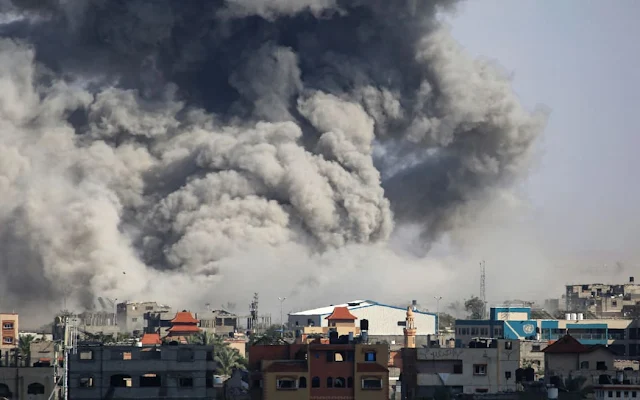Hamas leader Ismail Haniyeh has officially communicated to mediators, Qatar and Egypt, indicating his Palestinian militant group's acceptance of their Gaza truce proposal, marking a significant development following nearly seven months of intense warfare in the region.
In an official statement released on its website, Hamas declared that Haniyeh had engaged in phone conversations with Qatar’s Prime Minister Sheikh Mohammed bin Abdulrahman Al Thani and Egyptian Intelligence Minister Abbas Kamel. During these discussions, Haniyeh conveyed Hamas's approval of the proposed ceasefire agreement put forth by the mediators.
However, it's essential to note that the acceptance of the ceasefire proposal by Hamas does not imply immediate implementation, as the Israeli side is yet to communicate its stance on the matter.
A senior Hamas official, speaking anonymously due to the sensitive nature of the negotiations, emphasized that the fate of the ceasefire agreement now rests in the hands of the Israeli government. The official underscored that the success of the ceasefire hinges on Israel's willingness to cooperate or potentially obstruct the agreement.
The announcement by Hamas comes in the wake of Israel's call for Palestinians to evacuate eastern Rafah in anticipation of a ground invasion of the southern Gaza city. This move has prompted global concern regarding the escalation of hostilities in the region.
Upon hearing the news of Hamas's acceptance of the truce proposal, residents of Rafah expressed jubilation, with crowds taking to the streets to celebrate. Cheers, chants of "Allahu Akbar" (God is Greatest), and celebratory gunfire resonated throughout the area, reflecting the relief and optimism among the populace.
Despite extensive diplomatic efforts aimed at brokering a lasting truce, previous negotiations have faltered, primarily due to Hamas's insistence on a comprehensive ceasefire and Israeli Prime Minister Netanyahu's commitment to neutralizing remaining Hamas fighters in Rafah.
The conflict in Gaza, described as the bloodiest in its history, erupted following Hamas's unprecedented attack on Israel on October 7. The violence has resulted in a staggering death toll, with over 1,170 people, predominantly civilians, losing their lives, according to official figures.
Israel estimates that 128 hostages abducted by militants during the October 7 attack remain in Gaza, including 35 individuals confirmed dead by the military.
Meanwhile, Gaza's health ministry, under Hamas's administration, has reported a significant number of casualties resulting from Israel's retaliatory offensive, with at least 34,735 people killed, predominantly women and children.
In a related development, former Minister of Aviation, Femi Fani-Kayode, criticized Israel for its recent attack on Iran, characterizing it as disproportionate and mocking the Israeli military's use of small drones in the operation.
The evolving situation in Gaza continues to draw international attention and underscores the urgent need for a comprehensive and sustainable resolution to the protracted conflict between Israel and Hamas.






.jpeg)





0 Comments
Post your comment here